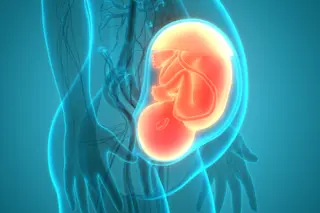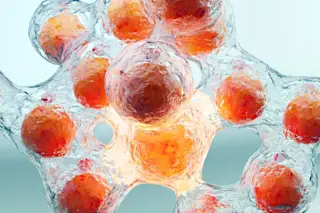Sophie Bushwick (Twitter, Tumblr) is a science journalist and podcaster, and is currently an intern at DISCOVERmagazine.com. She has written for
Scientific American, io9, and DISCOVER, and has produced podcasts for 60-Second Science and Physics Central.
Human chromosomes (grey) capped by telomeres (white) U.S. Department of Energy Human Genome Program
Renowned biologist Elizabeth Blackburn has said that when she was a young post-doc
, “Telomeres just grabbed me and kept leading me on.” And lead her on they did---all the way to the Nobel Prize in Medicine in 2009
. Telomeres are DNA sequences that continue to fascinate researchers and the public, partially because people with longer telomeres
tend to live longer. So the recent finding that older men father offspring with unusually lengthy telomeres sounds like great news. Men of advanced age will give their children the gift of longer lives---right? But as is so often the case in ...













